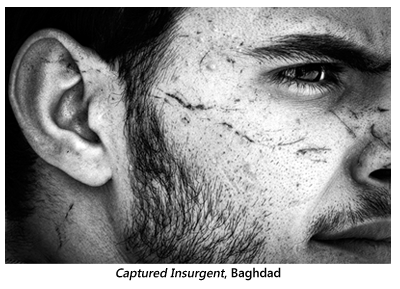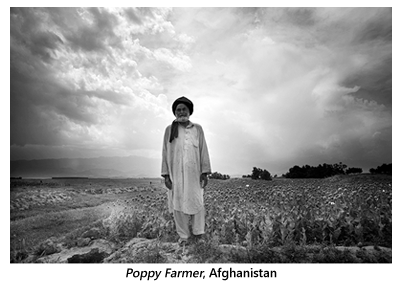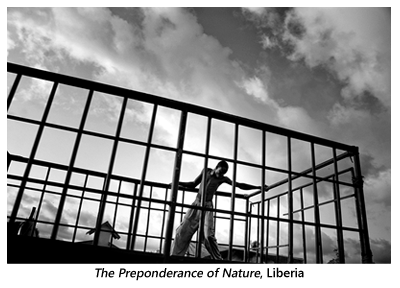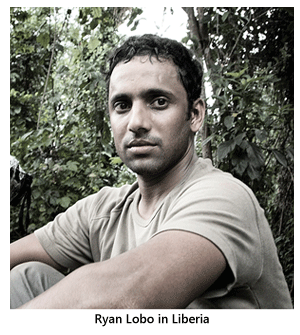- Prelude
- Editorial
- Raghu Rai: The Historian
- Ryan Lobo, 34 in Baghdad
- Through the Eye of a Lensman
- Adrian Fisk
- And Quiet Flows the River
- The Lady in the Rough Crowd: Archiving India with Homai Vyarawalla
- Raja Deen Dayal:: Glimpses into his Life and Work
- Raja Deen Dayal (1844-1905) Background
- Vintage Views of India by Bourne & Shepherd
- The Outsiders
- Kenduli Baul Mela, 2008
- Collecting Photography in an International Context
- Critical Perspectives on Photograph(y)
- The Alkazi Collection of Photography: Archiving and Exhibiting Visual Histories
- Looking Back at Tasveer's Fifth Season
- Kodachrome: A Photography Icon
- Three Dreams or Three Nations? 150 Years of Photography in India, Pakistan and Bangladesh
- Show And Tell – Exploring Contemporary Photographic Practice through PIX
- Vintage Cameras
- Photo Synthesis
- The Right Way to Invest
- What Happened and What's Forthcoming
- Art Events Kolkata: March – April 2011
- Art Bengaluru
- Mumbai Art Sighting
- North East Opsis
- Previews
- In the News
- Somnath Hore
ART news & views
Ryan Lobo, 34 in Baghdad
Volume: 3 Issue No: 16 Month: 5 Year: 2011
A Conversation between Franck Barthelemy and Ryan Lobo
October 2007, Baghdad, Iraq: Ryan Lobo, a photojournalist from Bangalore turned 34. He is in the Baghdad Red Zone to shoot a movie on Iraqi women. On that day, Ryan and his team went to the Ministry of Defence to capture a glimpse of the women soldiers  who operate the check post.
who operate the check post.
For the last ten years, photographer Ryan Lobo has been travelling the world to make documentaries and capture moments of life which strike him the most. Though Ryan is a professional photojournalist, he consciously calls himself a 'storyteller'. Whether he reports about the pigmies of Papua New Guinea or the farmers who grow heroin in Kabul, when he returns to Bangalore he composes a story as though it were a narrative made of images and words. Throughout his career, he has shot about 70 movies and taken innumerable photos on various themes. He is a regular participant with National Geographic and Animal Planet and has also published with Tehelka and Caravan as well. Like some of the iconic photographers of the 20th Century, including Henri Cartier Bresson or Robert Capa, he often struggles to keep a practiced distance with the people or subjects he reports on. And like many of them, he walks a fine line though it can be emotionally challenging.
“The pictures are there, and you just have to take them". ¹However, reporting facts ethically and informing objectively, has and always will remain a challenge.
2007 was a very important year for Ryan. He went to Afghanistan, Iraq and Liberia. He travelled to the latter for a documentary movie on the warlord, Joshua Milton Blahyi (JMB), commonly known as “General Butt Naked”. When Ryan and his team reached Monrovia to report on JMB, the General welcomed them at the airport. JMB was at the head of an army of child soldiers. He used to recruit them in the streets. He would brainwash them, drug them, assert his authority and send them,  half naked to fight for him. He made sure to convert these kids into efficient killing machines.
half naked to fight for him. He made sure to convert these kids into efficient killing machines.
One day, JMB stopped all war actions to become a Baptist priest. Instead of preaching war, he started preaching love and forgiveness, a drastic change that Ryan and his team tried to capture on film. They followed JMB for a few weeks and came back with a varied group of photos. The images are shot in black and white. They tell us about lost souls who are trying to survive the civil unrest, looking for reasons to live. Ryan's photographs brought back to us an explosion of feelings and emotions enmeshed with questions of patriotism, survival and human nature.
In Iraq on the other hand, Ryan and his team were commissioned to make a documentary movie on women. As they arrived in Baghdad Airport, they met their security team members who were walking unattended, bearing AK47s on their person! The team was given flask jackets and rushed toward their living quarters in an armoured car, driving on one of the most dangerous roads on earth. As they shot the movie and Ryan took still photographs, they were surrounded by armed soldiers: American, Iraqi as well as mercenaries. They witnessed continuous firing and explosions. The choppers only added to the experience, creating, as he recalls, an unrealistic atmosphere outside the realm of normality. The team did not sleep much, and the days felt as though they were entangled in anxiety!
On 18th October, 2010, Ryan turned 34. He made a short phone call home. In the meantime, there was a conflict between the security team and the lady who commissioned the movie. The shoot was cancelled. Ryan came back to India with his stills. In them, masked figures predominate. Shadows, reflections and backlighting heightens the drama of the photographs.
A few days ago, while Ryan was on his way to Kashmir, I got the opportunity to ask him some questions about his work:
Frank Barthelemy: Tell me something about your first camera.
Ryan Lobo: Canon AE-1. I was in 7th grade, and was about 10 years old when I got it. My parents allowed me one roll a month. And since I had no pocket money, I had to use it for an entire month.

FB: Do you still remember your first capture?
R L: A view from my window that was very underexposed. I used to shoot people at home, especially my grandmother. She was the only one to sit still for long periods.
FB: Your favourite shot till today?
R L: Couple of shots taken in Liberia. I thought there was a Shakespeare tragedy happening in front of me, an epic in the making.
FB: When was the first time you went to a war zone?
R L: It was in 2007, in Kabul, Afghanistan. I went there for a few weeks to shoot a movie on heroin trade. I met some farmers growing poppies. I came back with a movie and a few stills.
FB: You work as an observer, but how difficult it is to remain neutral?
R L: You have to hold on to your own integrity. There is a lot of drama and emotions on the ground. You have to look at it from a distance. It is challenging, as you see both sides of the story. The points of view are always changing. I try to be aware. I observe keenly. But in the end, it is 'me' looking at facts, whether I am influenced or not. Sometimes, you become friendly with the people you meet, the mercenaries cum bodyguards who were protecting me in Afghanistan for instance. I am aware of it, and I take it into consideration when I tell my stories.
FB: What was the last challenge that you faced?
R L: It is very difficult not to be influenced when you meet charismatic people. I try to stick to the truth, to facts. When I am confused, meditation helps. I try to let the flow of inputs go through me.
FB: Do you consider yourself an artist?
R L: I feel that I tell epic stories. I find myself led by stories and eventually reaching a larger audience is rewarding. My way of looking at the world has also changed a lot. When I was in college, studying science, it was not easy to do what I liked. There was a lot of uncertainty. When I chose to explore photojournalism, I was lucky to be supported by my family. I am now very happy to be associated with National Geographic for instance. I have no financial dependency in order to support my work. I work with very small teams. I take photos or shoot movies and write. I like the impact I have on people. My blog collects lots of feedback from readers. I feel that I am moving towards more introspective and philosophical themes nowadays. And I love the fact that my creations have a life of their own. They generate something different for every viewer or reader. I feel meaningful and privileged to be part of the process.
FB: You're very focused on the 'Eastern' part of the world. The West does not interest you?

R L: I have been busy looking at the East. I am story driven. There are stories everywhere in the world. I have had so far no opportunity to work in the West. I am open to it.
FB: Your universe of references?
R L: I like the work of Antonin Kratochvil. I met him in Sri Lanka after the Tsunami. His photos are raw, emotional and capture feelings. I like his visceral way of shooting. I was impressed by a book called Vietnam Inc... It shows the ugliness of the society. I read Borges, Wizel, Coetzee, Yung. I read a lot when I travel. I enjoy paintings by Hieronymus Bosch. I love going through many books at the same time. I have not received any art or literary education, but I am trying to educate myself. It helps me to learn about myself too.
FB: Is writing about your photos important to you?
R L: I write about my photos most of the time. I want people to relate to my work. I want to share the stories with my viewers. I don't feel it is a catharsis. Sometimes, when I write about my photos, I feel that I am writing about my dreams.
FB: Are you a romantic?
R L: I suppose a part of me is. But I want to transcend that. I want to come down to something pure and true without embellishment. War is in all of us. We are always tempted to be a hero and a villain. It is easier to reconcile the opposites.
FB: What's your next project?
R L: Lots of works are in progress. I want to go back to writing about West Africa. I want to photograph people. I have started an epic about ordinary people in India. I am setting up ground for a graphic novel.
¹ Robert Capa, famed War Photographer
² Vietnam Inc is a book by Welsh Magnum photographer Philip Jones Griffiths in which he showed the American citizens the real horror of the Vietnam War. Produced and Published by Philip Jones Griffiths in 1971
Images Courtesy: Ryan Lobo/Tasveer